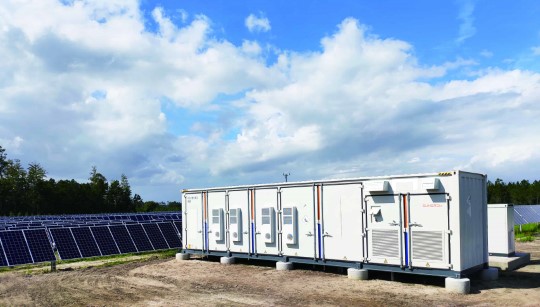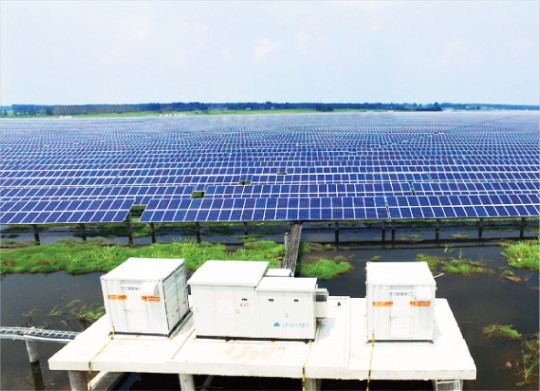Solar containers, also known as solar-powered shipping containers or solar energy containers, are revolutionizing the way we think about renewable energy and portable power solutions. These containers are designed to harness solar energy and convert it into electricity, making them ideal for a wide range of applications, from remote locations and disaster relief to military operations and off-grid living. In this article, we will delve into the key features of solar containers, their applications, and the benefits they offer.

1. Structural Design and Durability
- Robust Construction: Solar containers are typically constructed from high-quality, durable materials such as corten steel, which is resistant to corrosion and extreme weather conditions. This robust construction ensures that the containers can withstand harsh environments, making them suitable for deployment in remote and challenging locations.
- Modular Design: One of the most significant features of it is their modular design. This design allows for easy transportation, installation, and scalability. The containers can be stacked or arranged in various configurations to meet specific energy needs. This modularity also enables quick setup and dismantling, making them highly versatile.
- Insulation and Weatherproofing: To ensure optimal performance and longevity, they are equipped with insulation and weatherproofing features. These include thermal insulation to maintain stable internal temperatures and protect sensitive electronic components, as well as weatherproof seals to prevent water and dust ingress.
2. Solar Power Generation
- High-Efficiency Solar Panels: The core component of a solar container is its solar power generation system, which consists of high-efficiency solar panels mounted on the container’s roof or integrated into its walls. These panels are designed to capture maximum sunlight and convert it into electrical energy with minimal losses. Advances in photovoltaic technology have led to the development of solar panels with efficiencies exceeding 20%, ensuring high energy output even in low-light conditions.
- Solar Tracking Systems: To further enhance energy generation, some solar containers are equipped with solar tracking systems. These systems automatically adjust the orientation of the solar panels to follow the sun’s path throughout the day, maximizing sunlight exposure and increasing energy production by up to 25%.
- Energy Storage Solutions: In addition to solar panels, they are equipped with energy storage solutions, typically in the form of lithium-ion batteries. These batteries store excess energy generated during the day for use during nighttime or cloudy conditions. Advanced battery management systems ensure efficient charging and discharging cycles, prolonging battery life and maintaining consistent power supply.
3. Electrical and Power Management
- Inverters and Power Conditioning: The electricity generated by solar panels is in the form of direct current (DC), which needs to be converted to alternating current (AC) for most practical applications. They are equipped with inverters that perform this conversion, ensuring compatibility with standard electrical devices and infrastructure. Additionally, power conditioning systems regulate voltage and frequency to provide stable and reliable power output.
- Smart Grid Integration: Modern solar containers are designed with smart grid integration capabilities, allowing them to seamlessly connect to existing power grids. This integration enables bidirectional energy flow, where excess power generated by them can be fed back into the grid, contributing to overall energy sustainability. Advanced control systems also allow for remote monitoring and management of the container’s power generation and consumption.
- Load Management: To optimize energy usage, they incorporate load management systems that prioritize critical loads and manage power distribution efficiently. These systems can automatically shed non-essential loads during peak demand periods or low energy availability, ensuring uninterrupted power supply for essential operations.

4. Versatility and Applications
- Off-Grid Power Supply: One of the primary applications is providing off-grid power supply in remote locations. This includes powering remote villages, research stations, mining operations, and construction sites. The self-sufficiency and reliability of solar containers make them ideal for areas with limited or no access to conventional power sources.
- Disaster Relief and Humanitarian Aid: In disaster-stricken areas, where infrastructure may be damaged or destroyed, they offer a rapid and reliable source of power for emergency response and recovery efforts. They can be deployed to provide electricity for medical facilities, communication networks, and temporary shelters, aiding in the swift restoration of essential services.
- Military and Defense: They are also used by military and defence organizations for mobile and remote operations. Their portability, durability, and ability to generate power in austere environments make them valuable assets for forward operating bases, field hospitals, and communication centers.
- Commercial and Industrial Use: Businesses and industries are increasingly adopting solar containers for a variety of applications, including powering remote facilities, reducing energy costs, and enhancing sustainability efforts. They can be used to provide backup power, support renewable energy initiatives, and meet corporate social responsibility goals.
- Residential and Community Projects: They are also finding applications in residential and community projects, particularly in off-grid or underserved areas. They can be used to power homes, schools, community centers, and agricultural operations, improving quality of life and supporting local development.
5. Environmental and Economic Benefits
- Reduction in Carbon Emissions: By harnessing solar energy, they contribute to the reduction of carbon emissions and reliance on fossil fuels. This aligns with global efforts to combat climate change and transition to cleaner energy sources. Each solar container deployed in place of a diesel generator, for example, can offset significant amounts of CO2 emissions annually.
- Cost Savings: While the initial investment in solar containers can be substantial, the long-term cost savings are considerable. They have low operational and maintenance costs compared to traditional power generation methods. They also eliminate the need for fuel transportation and storage, reducing overall expenses and logistical challenges.
- Energy Independence: They provide energy independence, particularly in regions with unreliable or non-existent power grids. This independence enhances energy security and resilience, reducing vulnerability to power outages and price fluctuations in the energy market.
- Scalability and Flexibility: The modular nature of solar containers allows for easy scaling of power generation capacity to meet growing energy demands. This flexibility makes them suitable for a wide range of applications, from small community projects to large industrial operations. They can also be relocated and repurposed as needed, maximizing their utility and lifespan.
6. Technological Innovations and Future Trends
- Advancements in Solar Technology: Ongoing advancements in solar technology are continually improving the efficiency and performance it. Innovations such as bifacial solar panels, which capture sunlight from both sides and perovskite solar cells, which offer higher efficiencies and lower production costs, are expected to enhance the capabilities of solar containers further.
- Integration with Other Renewable Sources: Future solar containers may integrate other renewable energy sources, such as wind or biomass, to create hybrid power systems. This integration can provide a more consistent and reliable energy supply, particularly in regions with variable weather conditions.
- Smart Energy Management: The integration of artificial intelligence (AI) and machine learning (ML) in energy management systems is expected to optimize the performance of solar containers. These technologies can predict energy production and consumption patterns, automate load management, and enhance grid integration, leading to more efficient and sustainable energy solutions.
- Sustainable Materials and Manufacturing: As sustainability becomes a priority, the use of eco-friendly materials and manufacturing processes in the production of it is gaining traction. This includes using recycled materials, reducing waste, and minimizing the environmental impact of production.
- Wider Adoption and Global Impact: As the cost of solar technology continues to decrease and awareness of its benefits grows, the adoption of it is expected to increase globally. This wider adoption will contribute to the expansion of renewable energy infrastructure, support economic development, and improve access to clean energy in underserved regions.
Conclusion
Solar containers represent a versatile, sustainable, and innovative solution to the world’s growing energy needs. Their robust construction, high-efficiency solar power generation, and advanced energy management systems make them ideal for a wide range of applications, from remote power supply and disaster relief to commercial and industrial use. The environmental and economic benefits of it, coupled with ongoing technological advancements, position them as a key component of the future renewable energy landscape. As we continue to embrace clean energy solutions, they will play a crucial role in powering a sustainable and resilient future.
CIMC Yang Zhou Base is a leading manufacturer of solar containers and various other standard and special logistics equipment. With years of experience in the industry, it focuses on the design, production and distribution of high-quality innovative products that meet the specific needs of customers.
If you need high-quality and innovative logistics equipment, including refrigerated containers, cold chain equipment, containerized equipment integration, modular buildings, etc., База CIMC Ян Чжоу is your best choice. Welcome inquiries from customers all over the world and look forward to the opportunity to cooperate with you.


